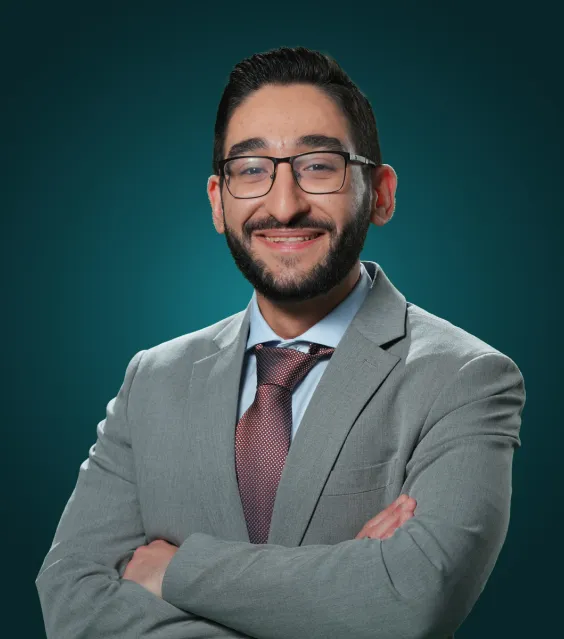Season 17 Innovators
Back to innovators
Mohammad AlShaikh Saleh

About
Mohammad AlShaikh Saleh is a Jordanian innovator with a global academic footprint. He earned his bachelor’s degree in electrical engineering from the University of Applied Sciences in Upper Austria, followed by a master’s in power engineering from the Technical University of Munich. Supported by funding from Qatar, he pursued his PhD in electrical and computer engineering at Texas A&M University.
Throughout his academic journey, Saleh has focused on sustainable energy solutions, authoring more than 20 scientific papers and earning research awards from the Polish Academy and Texas A&M’s Graduate Research Forum. His experience in Europe and the U.S.—regions with advanced green energy agendas—shaped his commitment to creating practical innovations that make a tangible impact.
“I’ve always been drawn to solving problems that matter,” he says. “Academic publishing is important, but I wanted to see my research applied in the real world.”
A lifelong fan of Stars of Science, Saleh first discovered the opportunity to apply when he saw a call for applicants at Texas A&M University at Qatar. Inspired to take the leap, he joined the competition to bridge the gap between research and real-world impact.
About the Project
Saleh’s invention is a smart device plugged in standard communication port of electric vehicles that monitors driver behaviour and battery performing characteristics to predict battery health and lifespan. Unlike conventional models that rely solely on artificial intelligence, his system merges AI with physics-based equations to provide transparent, explainable insights—delivered to the driver through a mobile app.
The device offers actionable recommendations, including most adequate regime to charge or discharge the battery, how to optimize energy usage, and early warnings if the battery shows signs of failure. By extending battery life, it reduces e-waste, increases reliability, improves safety and supports the transition to more sustainable transportation—especially important in harsh climates like the Middle East, where battery degradation is accelerated.
“Most AI tools are black boxes,” he explains. “My model is different—it’s easy to understand, reliable, and based on real physical data.”
With applications in both consumer and industrial markets, the invention targets EV manufacturers, battery recyclers, and research institutions. Saleh is currently working with collaborators from Texas A&M at Qatar and Hamad Bin Khalifa University and is actively seeking investors to bring the product to market.
The Impact
By increasing the reliability of electric vehicles, Saleh’s innovation has the potential to accelerate EV adoption across the Middle East and beyond. It directly supports Qatar National Vision 2030 and aligns with broader regional sustainability efforts.
“People in our region didn’t grow up with electric vehicles—we grew up with gas-powered cars,” he says. “This technology helps make the shift easier and is more trustworthy.”
Looking ahead, he plans to commercialize the device and release parts of the AI model as open-source, inviting other researchers to build on his work. His dream is to contribute to a future where EVs are not just an alternative, but the norm.
“Enter competitions, share your work, and collaborate,” he says. “Even if you don’t win, you grow. And that’s how innovation really starts.”
